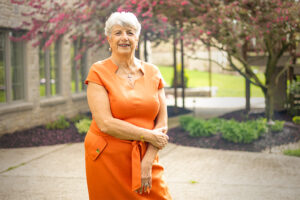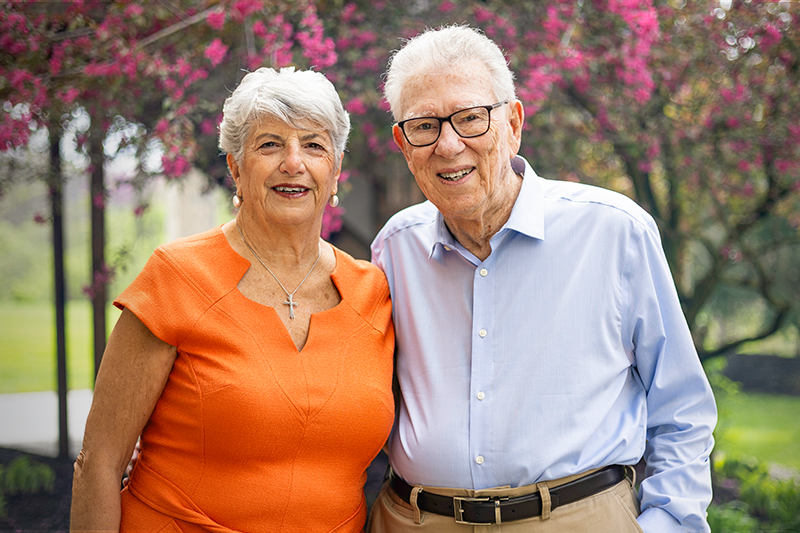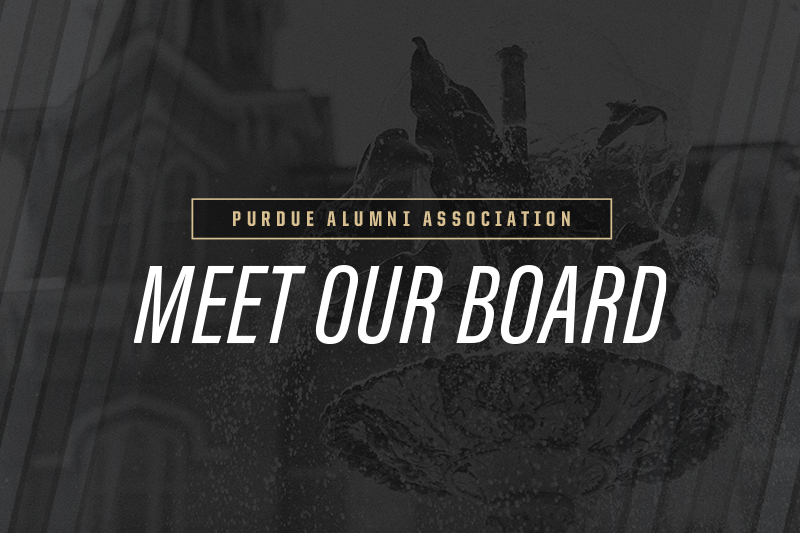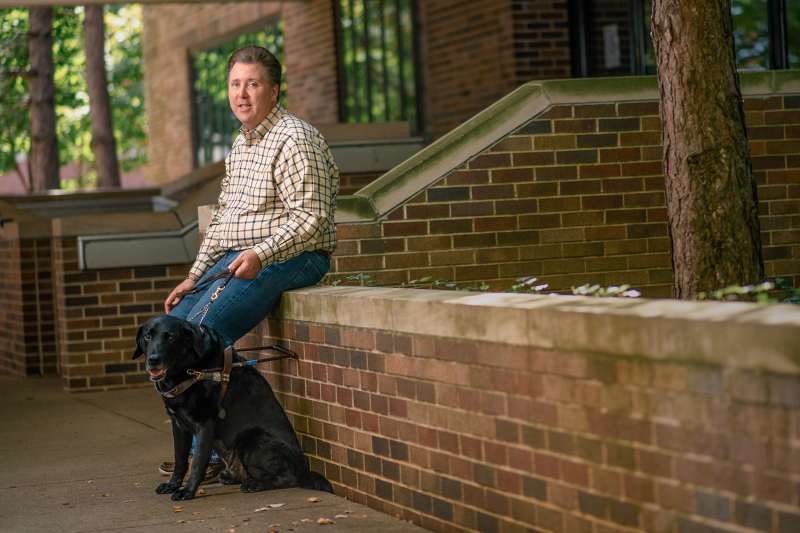When Pat Bishara was first diagnosed with Alzheimer’s in December 2017, she immediately thought of her family. She feared that one day she would forget the names of her husband, Rafik (HHS PhD‘72), their three daughters, and their 11 grandchildren.
Despite her fear, she accepted her illness—and immediately charted her path into advocacy, with Rafik always at her side.
“So many people think it’s just part of aging, but there’s a difference between aging symptoms and Alzheimer’s symptoms,” Pat says. “Or, they think this happens in your 70s and your 80s, but these days, people as young as 45 years old are finding out they have Alzheimer’s.”
Pat and Rafik, who live in Carmel, Indiana, began advocating in 2023, when the Alzheimer’s Association asked to film a video about Pat’s journey for its annual fundraiser. Since then, the two have been invited to speak at multiple community events and interviewed by different television channels across the country—even appearing on Good Morning America in December 2024.
“We strongly believe that there should not be a stigma with being diagnosed with Alzheimer’s or dementia, and that’s why we advocate for early detection, diagnosis, and treatment (DDT),” Rafik says. “Pat didn’t have to go through that stigma because she had her family supporting her all the way, but that is not always the case for everyone.”
Rafik was certified as an Alzheimer’s Association awareness champion and community educator in February. Prior to becoming a full-time advocate, Rafik worked for 35 years at Eli Lilly and Company before retiring as an executive in 2004. He then worked as a technical consultant until Pat’s diagnosis.
“I felt there was a calling with this, so I stopped my technical advising and decided to be with Pat,” Rafik says. “Now, we share, we advocate, and we recommend. I don’t think of myself as her caretaker or caregiver. Pat and I prefer ‘care partner’ or even ‘care lover’—and every time I say that one, it gets a laugh. Sometimes I feel that my role is like a butler.”
In the United States, an estimated 6.9 million people aged 65 and older are living with Alzheimer’s. While there is no cure, researchers continue to make progress. Some medications have shown promise in slowing the progression of symptoms, and clinical trials are underway to evaluate the safety and effectiveness of new treatments.
After applying to numerous clinical trials, Pat was accepted into a trial conducted by Lilly in 2021.

“I was ecstatic to find out the trial I got in was with Eli Lilly,” Pat says. “Rafik worked there for so long, and Lilly has done so many great things with medicine, that we knew we were in good hands. To have that extra connection to Rafik made it even more meaningful.”
Pat received monthly infusions 39 times during the trial, not knowing if she was receiving the active treatment or a placebo. Her treatments, which took place at the Neuroscience Institute of the IU School of Medicine in Indianapolis, called for some short days and some long days.
On short days, Pat simply received the infusion and went home. Longer days lasted four to six hours, and her middle daughter, Janine—who is a physician assistant—joined her for what were extended sessions of study and analysis. On these occasions, a psychologist would perform a battery of tests designed to assess Pat’s cognitive functions. These days would also require either a PET scan or an MRI.
The medicine Pat received was indeed active. Called donanemab, with the brand name of Kisunla, the drug is designed to target and slow the progression of Alzheimer’s symptoms for early symptomatic individuals. Pat presented in support of the treatment at an FDA advisory committee hearing, and donanemab was approved by the FDA in July 2024.
When donanemab received approval, Pat and Rafik were at their lake house in Rome City, Indiana. Two television stations called, and in one of those interviews, Pat wept with joy.
“It was such a happy day,” Pat says. “I told the reporter, ‘I want you to know that these are tears of happiness.’ Because it was just such a wonderful thing that was happening, and I knew that this was going to make a big difference around the world.”
Seven years after her diagnosis, Pat is going strong. She drives around the Carmel area, plays bridge, goes to church, and remains active in her community. She also takes advantage of the fact that hers is a close-knit family, as their three daughters—Claudine, Janine, and Michelle—all live within walking distance.
“They’re always together,” Rafik says. “They all see each other as best friends. We’re a family that loves, cares, and supports one another—we’re truly blessed.”
Pat and Rafik donate as well as advocate, giving to charitable organizations such as the Alzheimer’s Association and CICOA, a not-for-profit agency based in central Indiana that provides resources for seniors and people with disabilities. They have also established scholarships at Purdue, Ivy Tech, Butler, and Ohio State University, including a scholarship in Purdue’s College of Health and Human Sciences that is designed to support students—especially women—with financial challenges.
“My time at Purdue helped shape me, and we’re proud to support the university,” Rafik says. “I believe in educate, educate, be a good Boilermaker, and educate. You can lose your car, your job, your watch—anything—but nobody can take your education.”
—Keagan Slocum


